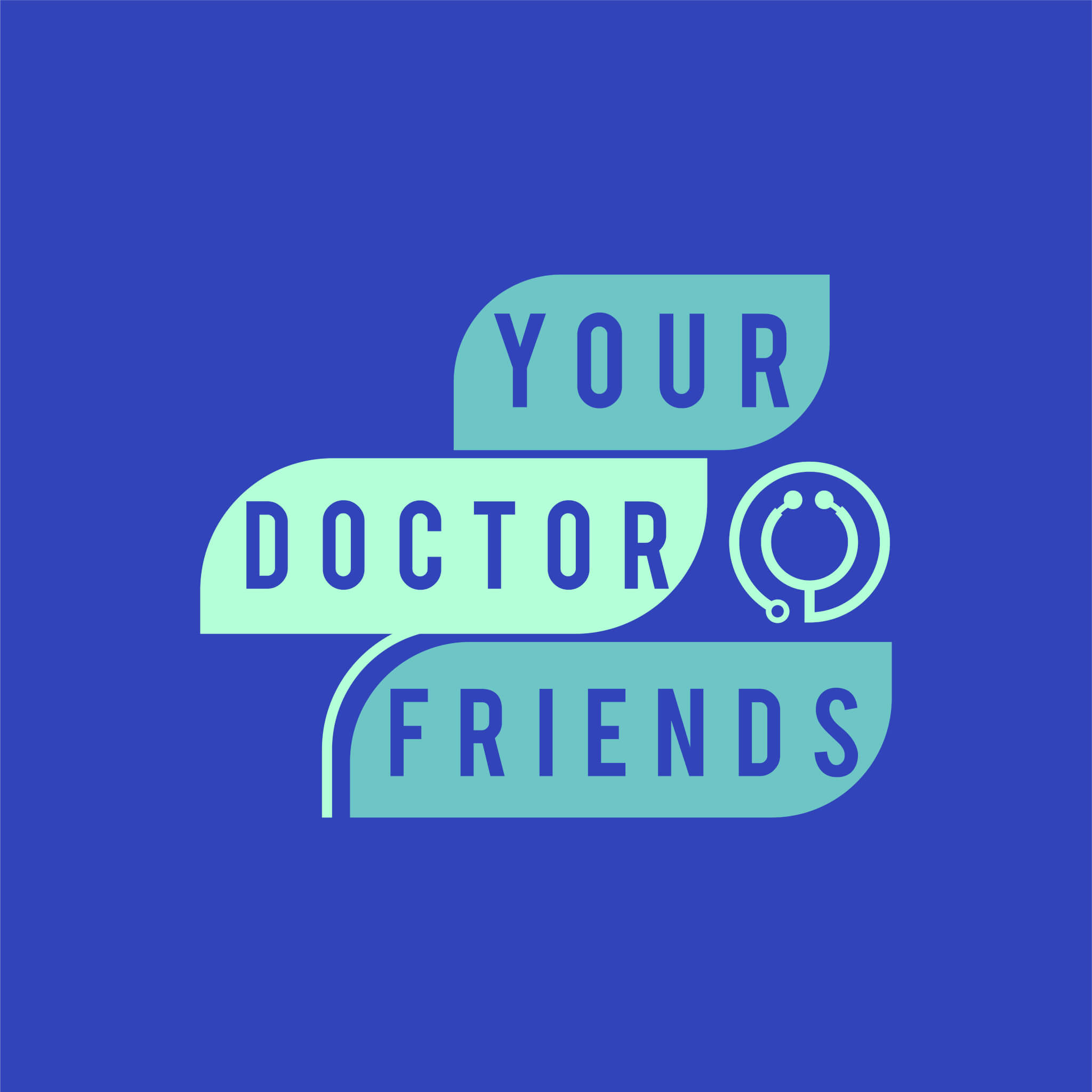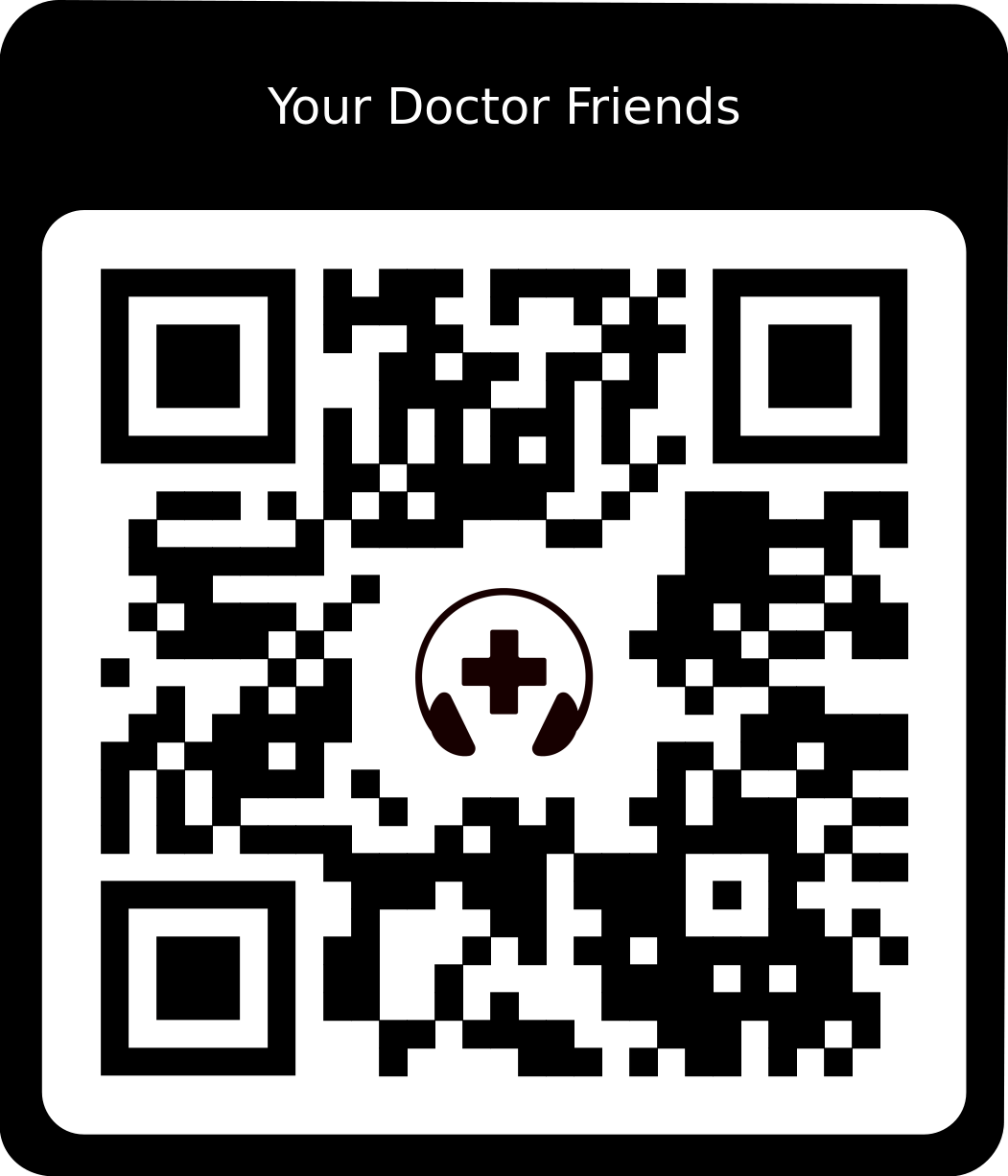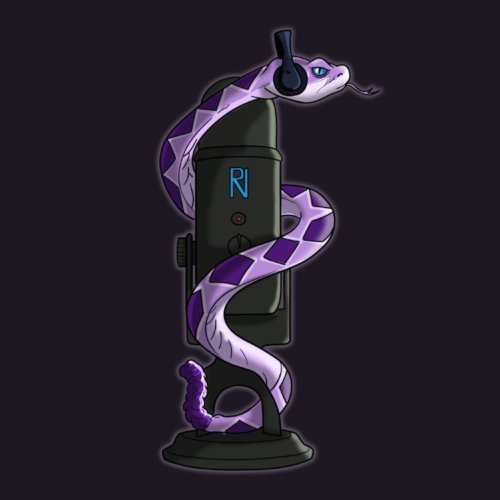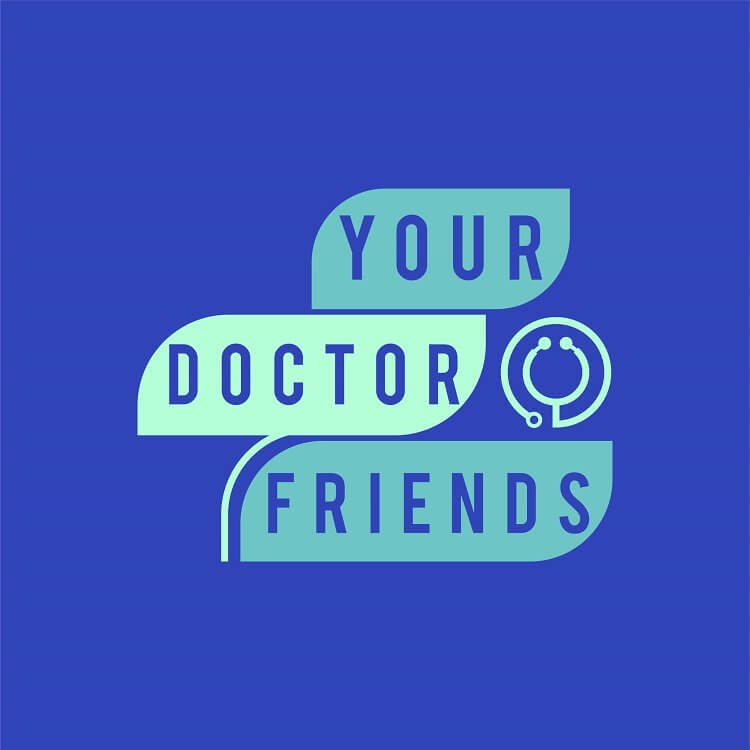
Your Doctor Friends
Approachable Health Information. None of the Garbage. Let us be Your Doctor Friends!
YDF Greatest Hits: Is “Multitasking” Possible? – Summer Refresh Edition (with Gloria Mark, PhD)
Feeling tethered to your screens? Doomscrolling much? Have you gotten that little message from your phone, ratting you out, informing you that "you spent an average of XX hours and xx minutes daily of screen time"?? Do you wish you could set some better boundaries with tech/social media/screens in general?
Let's face it, our devices are here to stay. How can we make them work FOR US, instead of distracting us from the personal connections we need? How are we supposed to "multitask"?? Is the human brain even capable of such a feat??
Cue our expert in human-computer interaction (HCI), Gloria Mark, PhD! WE ARE SO FORTUNATE to be able to pick her brain about how to make OUR BRAINS better at prioritizing our precious mental currency: OUR ATTENTION.
Dr. Mark is the author of Attention Span and Multitasking in the Digital Age, the Chancellor's Professor of Informatics at UC Irvine, and has published over 200 papers in top academic journals, and appeared in scores of platforms, including the New York Times, BBC, NPR, the Atlantic, and recently on Armchair Expert with Dax Shepard (check it out, the episode is GREAT!)
We are aware that we likely outkicked our coverage, and are SO HAPPY to share Dr. Mark's expertise with y'all. Strap in, pay attention, this is a can't-miss episode, friends! :)
Topics in this episode include:
The MYTH of multitasking.
What is "distraction cost'?
How attempting to "multitask" affects our brains and bodies (hint: stress!)
Is it really the "notifications" on our phones that are distracting us, or is it something else?
Are we really "victims of the algorithm" when it comes to social media?
How can being "information rich" make us "attention poor"?
How can we be aware of our "urges" to check our phones/email/computer and become more intentional in our use of devices?
Learn more about Dr. Mark's work at her website.
Her latest book, Attention Span, is available nationwide wherever books are sold! Learn more about her book here.
Your Doctor Friends have some BIG THINGS in the works for "refreshing" the pod, and how we deliver meaningful, usable, valid health education to YOU, our dear friends!
You'll be hearing some "upcycled" episodes this summer while we work on implementing these changes, and we will be back in full force in the next month or so with a brand new haircut ;)
Thanks for tuning in, friends! Please sign up for our “PULSE CHECK” monthly newsletter! Signup is easy, right on our website, and we PROMISE not to spam you. We just want to send you monthly cool articles, videos, and thoughts :)
For more episodes, limited edition merch, to send us direct messages, and more, follow this link!
Connect with us:
Website: https://yourdoctorfriendspodcast.com/
Email us at [email protected]
@your_doctor_friends on Instagram - Send/DM us a voice memo or question and we might play it/answer it on the show!
@yourdoctorfriendspodcast1013 on YouTube
@JeremyAllandMD on Instagram, Facebook, and Twitter/X
@JuliaBrueneMD on Instagram
July 23, 2024
Am I Damaging My Tendons? (with Jill Cook, PhD)
Achilles. Rotator cuff. Patella. Hamstring. They're all structures involving tendons, and you probably either know someone who's injured them, or have experienced the dreaded tendon injury yourself.
Aaron Rodgers experienced an acute Achilles tendon rupture on Monday Night Football in September 2023, just 4 plays into his first season as QB for the New York Jets. Fans watched as he dramatically pulled up lame after a tackle, having snapped his Achilles, and subsequently sitting out the 2023 season. Just this week he stated in an interview "my summer ends Sunday", confirming that he is back to play this upcoming 2024 football season for the Jets.
So what the heck is actually going on? Why do tendons hurt sometimes? Why do they snap? Is it all just degenerative, "getting old"-type stuff? How can we prevent an injury like Rodgers' from happening to US??
In this episode, we reveal it all, friends! We have a world’s expert in tendon pathology, treatment and injury prevention to tell us why our tendons get injured, what we can do to treat them and most importantly, the things we can do prevent them from breaking down.
Jill Cook, PhD is a professor in musculoskeletal health in the La Trobe Sport and Exercise Medicine Research Centre at La Trobe University in Melbourne Australia. Jill's research areas include sports medicine and tendon injury. She is the "tendon guru" and has dedicated her career to learning about and improving our care of tendons.
Jeremy recently had the privilege of attending Jill's educational lecture at the NBA Team Physician's national meeting, and she so graciously agreed to be our guest for this episode! Your Doctor Friends bring the professional-level expert education straight to you, friends!
Topics covered in today's episode include:
What actually ARE tendons? What do they do?
Types of tendon injuries- including acute tears, "overuse" injuries, and degenerative "wear and tear".
Risk factors associated with tendon injuries.
What is "tendinopathy"? Is it there forever?
What is the role of imaging/MRI in the diagnosis and treatment of tendon injury?
What about shots? Do cortisone or platelet-rich plasma (PRP) injections help in tendon injuries?
How do you actually treat tendinopathy? Can it be "cured"?
Thanks for tuning in, friends! Please sign up for our “PULSE CHECK” monthly newsletter! Signup is easy, right on our website, and we PROMISE not to spam you. We just want to send you monthly cool articles, videos, and thoughts :)
For more episodes, limited edition merch, to send us direct messages, and more, follow this link!
Connect with us:
Website: https://yourdoctorfriendspodcast.com/
Email us at [email protected]
@your_doctor_friends on Instagram - Send/DM us a voice memo or question and we might play it/answer it on the show!
@yourdoctorfriendspodcast1013 on YouTube
@JeremyAllandMD on Instagram, Facebook, and Twitter/X
@JuliaBrueneMD on Instagram
July 16, 2024
Am I “Winning” at Fitness? (V02 max and MORE with Phil Skiba, DO)
Do you remember "Presidential Physical Fitness” testing from youth? Can you name all 6 of the “classic” tests it included?
Fun fact: (according to a Feb. 2024 NYT article) Born of Cold War-era fears that America was becoming “soft,” the test was first introduced by President Lyndon Johnson in 1966.
The goal was to improve the fitness of the nation’s youth for military service. The original test also included a softball throw, which mimicked throwing a grenade
So if you don’t have antiquated mid-century calisthenics metrics to tell you if you’re fit/athletic, what can you use? How can you know if you’re WINNING AT FITNESS??
What’s an average human to do?
Your Doctor Friends came across NYT article titled “This Test Might Be the Best Way to Track Fitness and Longevity” which focused on V02 max. The article presents the pros and cons of using V02 max as a valid, objective measure of cardiopulmonary fitness.
Your Doctor Friends decided to reach out to our Exercise Physiology MASTER EXPERT, to break it down for y’all!
Welcome, Philip Skiba, DO!
Dr. Skiba is the outgoing Director of Sports Medicine/Fellowship Director for Advocate Health - Chicago, where he served for 12 years
Dr. Skiba founded the Advocate Human Performance and Biomechanics Laboratories, helping amateur, elite and professional athletes explore their limits using state-of-the-art technology.
Dr. Skiba was recently recruited to a professorship at Thomas Jefferson University Medical School in Philadelphia, where he will serve as Medical Director of Sports Medicine/Fellowship Director.
Dr. Skiba serves on the medical boards of both USA Triathlon and USA Cycling and accompanied Team USA to the World Championships in Australia.
Unusual for a physician, he has also personally coached dozens of world-class athletes. Most notably, he was hired by Nike for the Breaking 2 project and helped train the fastest runners alive in pursuit of the first 2-hour marathon.
Dr. Skiba later appeared in and narrated portions of NatGeo’s Cannes Award-Winning Documentary “Breaking2”. He remains a familiar presence in print and broadcast journalism.
Check out this link to a clip from the Breaking2 documentary to see Dr. Skiba in action and for an adorable iconic Skiba-laugh :)
Eat your heart out, Peter Attia, Your Doctor Friends have the REAL MVP (of sports performance)!
Let’s get sweaty. We're all winning - listen to Your Doctor Friends :)
Thanks for tuning in, friends! Please sign up for our “PULSE CHECK” monthly newsletter! Signup is easy, right on our website, and we PROMISE not to spam you. We just want to send you monthly cool articles, videos, and thoughts :)
For more episodes, limited edition merch, to send us direct messages, and more, follow this link!
Connect with us:
Website: https://yourdoctorfriendspodcast.com/
Email us at [email protected]
@your_doctor_friends on Instagram - Send/DM us a voice memo or question and we might play it/answer it on the show!
@yourdoctorfriendspodcast1013 on YouTube
@JeremyAllandMD on Instagram, Facebook, and Twitter/X
@JuliaBrueneMD on Instagram
July 9, 2024
UPDATE: Is Gun Violence a Public Health Problem? (with Garen Wintemute, MD, MPH)
The United States Surgeon General, Dr. Vivek Murthy, declared this week that gun violence in the US is a public health crisis. Dr. Murthy publicly stated, in a 39-page advisory, that the U.S needs to treat gun violence in the same way we have tackled smoking or car crashes.
Deaths caused by guns rose to the highest in three decades in 2021. In 2020, firearm-related injuries became the leading cause of death of children and adolescents aged 1-19. Gun-related deaths for youths were higher than car accidents, cancer, and heart disease.
To quote Dr. Murthy,
“I want people to understand the full impact of firearm violence in our country, and I want them to see it as a public health issue. I know it’s been polarizing and I know it’s been politicized, but if we can see it as a public health issue, we can come together and implement a public health solution.”
Also, this week marks two years since since the mass shooting at the July 4th parade in Jeremy's hometown of Highland Park, Illinois that killed seven people, and injured many more.
Your Doctor Friends decided it was timely to re-release last year's Independence Day episode.
Our expert for this episode is THE INCOMPARABLE Garen Wintemute MD, MPH:
Dr. Wintemute is Distinguished Professor of Emergency Medicine and Baker–Teret Chair in Violence Prevention at the University of California, Davis.
He is the founding director of the Violence Prevention Research Program there and of the California Firearm Violence Research Center, the nation’s first publicly-funded center for research in this field. Trained initially as a biologist at Yale University, Dr. Wintemute attended medical school and residency at UC Davis and studied epidemiology and injury prevention at The Johns Hopkins University.
He practices and teaches emergency medicine at UC Davis Medical Center, a Level I trauma center, and is a public health leader in the world of violence prevention
Key highlights in this episode include:
Background in the history of gun violence in the US. Where are we now?
What makes the US unique in its struggle with gun violence?
What's the history of legislation re: gun violence (including assault-type weapons) prevention?
Are there actually more mass shootings now than in previous years?
Does Chicago have more gun violence than other major cities? Why is Chicago so often highlighted?
What is the mental health toll that gun violence takes? How is this being addressed?
What can people do to make a difference in gun violence prevention?
Dr. Wintemute recommends the following resources to learn about gun violence prevention:
The "What Can You Do" Initiative via UC Davis Health.
The Violence Prevention Research Program at UC Davis (Dr. Wintemute is the founding director :)
Clinical tools for preventing firearm injuries at The BulletPoints Project.
Thanks for tuning in, friends! Please sign up for our “PULSE CHECK” monthly newsletter! Signup is easy, right on our website, and we PROMISE not to spam you. We just want to send you monthly cool articles, videos, and thoughts :)
For more episodes, limited edition merch, to send us direct messages, and more, follow this link!
Connect with us:
Website: https://yourdoctorfriendspodcast.com/
Email us at [email protected]
@your_doctor_friends on Instagram - Send/DM us a voice memo or question and we might play it/answer it on the show!
@yourdoctorfriendspodcast1013 on YouTube
@JeremyAllandMD on Instagram, Facebook, and Twitter/X
@JuliaBrueneMD on Instagram
July 2, 2024
Am I Doing Sunscreen Wrong? (with Vidya Shivakumar, MD)
We know we are supposed to wear sunscreen. We know sun exposure can increase our risk for skin cancer. So how do we reconcile our desire for that "desirable summer glow" with the risk of medical harm?
Your Doctor Friends get these texts all the time, especially post-summer solstice:
"If I wear sunscreen, what SPF should I use? Is chemical or mineral better? Is it actually waterproof? And I’ve heard it can get into my bloodstream, what's that all about??"
Friends, are you ready to soak up the sun…safely?
As is standard with Your Doctor Friends, we were able to find one of OUR doctor friends to come on and clear this all up.
Welcome Vidya Shivakumar, MD!
Dr. Shivakumar is a Dermatologist at Rush University Medical Center, board-certified by the American Academy of Dermatology since 2015. She provides comprehensive skin (and all things Dermatology) care at her bustling academic practice in Chicago at RUSH. She is active in research, teaching, and has presented many times in both the community setting, scientific arena, and in news media. AND NOW she graciously agreed to come chat with us to give us the scoop on the goop we put on our skin to protect ourselves from the sun!
Topics covered in today's episode include:
What is a sunburn?
What are short and long term consequences of a sunburn?
Why do some people burn and some people tan?
Does this change people’s risk of harm?
Do burns affect kids skin differently than adult skin?
Are there long term consequences to burns earlier in life?
Is there a right or wrong way to put on sunscreen?
What is the best SPF to choose?
What's the difference between chemical and mineral sunscreen?
Is it actually waterproof? When should we reapply?
If I wear sunscreen, does that mean I won't tan?
What's better, aerosol or regular tube form?
Can I become vitamin D deficient from wearing sunscreen?
What about "oral sunscreen", or "sunburn reduction pills"? Do they work? Does that take the place of regular sunscreen application?
Here are some great FAQs from the American Academy of Dermatology about sunscreen.
Thanks for tuning in, friends! Please sign up for our “PULSE CHECK” monthly newsletter! Signup is easy, right on our website, and we PROMISE not to spam you. We just want to send you monthly cool articles, videos, and thoughts :)
For more episodes, limited edition merch, to send us direct messages, and more, follow this link!
Connect with us:
Website: https://yourdoctorfriendspodcast.com/
Email us at [email protected]
@your_doctor_friends on Instagram - Send/DM us a voice memo or question and we might play it/answer it on the show!
@yourdoctorfriendspodcast1013 on YouTube
@JeremyAllandMD on Instagram, Facebook, and Twitter/X
@JuliaBrueneMD on Instagram
June 25, 2024
YDF Greatest Hits: What is Gender Affirming Surgery? (with Loren Schechter, MD)
HAPPY PRIDE, FRIENDS! This week we are re-releasing an episode that makes us proud; when we interviewed the amazing Dr. Loren Schechter to learn about and discuss gender-affirming surgery. The conversation was as helpful and poignant last year as it is now, so we thought it would be smart to give it another go :)
In general, surgical interventions aim to "right a wrong". Maybe your appendix is acutely inflamed and infected and needs to come out. That's a "wrong." Maybe that "wrong" is that you were born with a cleft palate and your folks wanted it corrected for you so you could eat and breathe easy.
Maybe your assigned gender at birth doesn't match your gender identity. Maybe that is the "wrong" that surgery can attempt to make "right".
Sometimes fear is our response to being confronted with concepts we don't fully understand. That fear can beget big emotional reactions. Your Doctor Friends get it. That's why we brought on our friend, Dr. Loren Schechter, a wonderfully accomplished, experienced, and kind plastic surgeon who has been performing gender affirming surgery for the past 20+ years.
Dr. Schechter is currently the director of the Gender Affirming Surgery program at Rush University Medical Center, and the President-elect of the American Society of Gender Surgeons.
In this episode, Dr. Schechter educates us, and we leave with a better understanding of gender affirming care.
Key highlights in this episode include:
What is gender affirming surgery? What procedures are typically performed, and what are the indications?
How long has gender affirming surgery been around?
Other than the surgeon, who is on the healthcare team for someone undergoing gender affirming surgery?
Does insurance cover these procedures?
Do people ever regret their decision to have surgery?
What cool innovations are on the horizon in the field of gender affirming surgery?
Come on this awesome journey with us, friends! Let's all understand each other better. Happy Pride.
Thanks for tuning in, friends! Please sign up for our “PULSE CHECK” monthly newsletter! Signup is easy, right on our website, and we PROMISE not to spam you. We just want to send you monthly cool articles, videos, and thoughts :)
For more episodes, limited edition merch, to send us direct messages, and more, follow this link!
Connect with us:
Website: https://yourdoctorfriendspodcast.com/
Email us at [email protected]
@your_doctor_friends on Instagram - Send/DM us a voice memo or question and we might play it/answer it on the show!
@yourdoctorfriendspodcast1013 on YouTube
@JeremyAllandMD on Instagram, Facebook, and Twitter/X
@JuliaBrueneMD on Instagram
June 18, 2024
Bigorexia: Is it Muscle Building or an Eating Disorder? (with Jason Nagata, MD)
Have you heard of the term, "bigorexia"?
It is a form of body dysmorphic disorder, similar in ways to anorexia.
Bigorexia is used to describe muscle dysmorphia, a condition exhibited mostly by boys/men and characterized by excessive weight lifting, a preoccupation with not feeling muscular enough and a strict adherence to eating foods that lower weight and build muscle.
And it is seriously on the rise, and surprisingly under-recognized.
The rise has led to articles titled, “What is Bigorexia?” in the NY Times and “Body Dysmorphia in boys and men can fuel muscle obsession, doctors say” in the Washington Post.
Body image challenges are not a new thing, however the world we live in today presents new accelerants making these conditions even harder to manage. If we are not screening for them in all people, no matter gender status, we are likely missing people who need help.
Lucky for us, there are amazing clinician researchers doing outstanding work to try to help us understand more about these conditions and ways we can help. And today we have a world’s expert whose lab has published extensively on muscle dysmorphia.
Welcome, Jason Nagata, MD!
Dr. Nagata is a pediatrician and Associate Professor of Pediatrics at the University of California, San Francisco specializing in adolescent and young adult eating disorders.
He researches eating disorders, muscle-enhancing behaviors, and social media in boys and men.
He edited the book Eating Disorders in Boys and Men and is Senior Editor of the Journal of Eating Disorders.
He has published over 300 articles in academic journals and his research has been covered by The New York Times, CNN, NPR, and NBC News.
He is the recipient of the American Academy of Pediatrics Emerging Leader in Adolescent Health Award and the International Association for Adolescent Health Young Professionals Prize.
Dr. Nagata recommends the following resources:
The National Eating Disorders Association (NEDA) website.
Your Doctor Friends recommend checking out Dr. Nagata's "Nagata Lab" page on the UCSF website!
Thanks for tuning in, folks! Please sign up for our "PULSE CHECK" monthly newsletter! Signup is easy, right on our website page, and we PROMISE we will not spam you! We just want to send you cool articles, videos and thoughts :)
For more episodes, limited edition merch, or to become a Friend of Your Doctor Friends (and more), follow this link!
Find us at:
Website: yourdoctorfriendspodcast.com
Email: [email protected]
Connect with us:
@your_doctor_friends (IG) Send/DM us a voice memo/question and we might play it on the show!
@yourdoctorfriendspodcast1013 (YouTube)
@JeremyAllandMD (IG, FB, Twitter)
@JuliaBrueneMD (IG)
@HealthPodNet (IG)
June 4, 2024
Your Doctor Friends
The show that teaches you to sniff out the garbage and answers all the questions you wish you could call or text your doctor friend. Don't get caught in endless web search spirals or social group chats, listen to your doctor friends!
Team
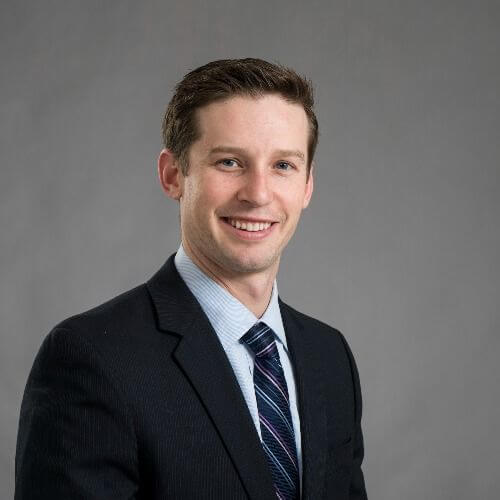
Jeremy Alland, MD
Dr. Jeremy Alland is a sports medicine physician at Midwest Orthopaedics at RUSH, a renowned, consistently top-10 nationally-ranked orthopedic practice in Chicago, IL. In addition to a busy clinical practice, he serves as the head primary care team physician for the Chicago Bulls and Chicago Dogs, as well as a team physician for the Chicago White Sox.
An avid athlete, Dr. Alland played collegiate baseball for DePauw University before pursuing medicine and enjoys golfing, basketball and stand-up paddleboarding. He lives in a suburb of Chicago with his wife, Katie, two children, Olive and Logan, and their goldendoodle, Archie. He never thought he would have a podcast, but has found it insanely fun and is excited to bring fun and approachability to the most common questions we hear as doctors.
"Work Hard + be kind" -The Alland Kitchen Wall
An avid athlete, Dr. Alland played collegiate baseball for DePauw University before pursuing medicine and enjoys golfing, basketball and stand-up paddleboarding. He lives in a suburb of Chicago with his wife, Katie, two children, Olive and Logan, and their goldendoodle, Archie. He never thought he would have a podcast, but has found it insanely fun and is excited to bring fun and approachability to the most common questions we hear as doctors.
"Work Hard + be kind" -The Alland Kitchen Wall
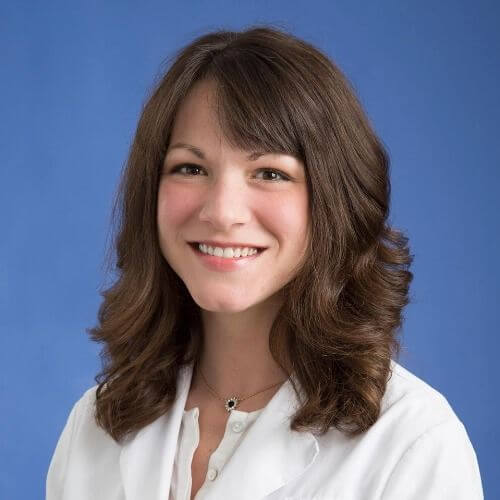
Julie Bruene, MD
Dr. Julie (Julia if we’re being formal, Julia Rose if she’s in trouble) Bruene is a sports medicine physician at Midwest Orthopaedics at RUSH, a renowned, nationally-ranked orthopedic practice in Chicago. She serves as a team physician for the Chicago White Sox, Chicago Bulls, and DePaul University.
Aside from her obvious interests in sports and medicine, she is a true crime obsessive and is a total sucker for rescued cats. She lives in Chicago with her husband and partner-in-crime, Adam, and with several of the aforementioned rescued cats. We don’t need to get into specifics about the exact number here. She likes when people are kind to one another and when animals dress up like other animals.
Rock over London, rock on Chicago.
Aside from her obvious interests in sports and medicine, she is a true crime obsessive and is a total sucker for rescued cats. She lives in Chicago with her husband and partner-in-crime, Adam, and with several of the aforementioned rescued cats. We don’t need to get into specifics about the exact number here. She likes when people are kind to one another and when animals dress up like other animals.
Rock over London, rock on Chicago.
